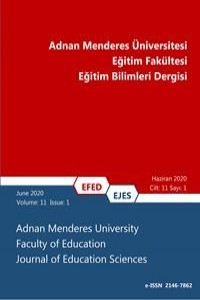Hatay Okullarında Engellilerin Cinsel Eğitimi Durum Değerlendirmesi
Bu araştırma, Hatay, Antakya merkez ilçesinde bulunan ve engelli öğrencilere hizmet veren 13 devlet ilk öğretim okulunda görev yapan rehber öğretmenlerle gerçekleştirilmiş bir durum çalışmasıdır. Söz konusu okullarda herhangi bir cinsel eğitim yapılıp yapılmadığı, yapılıyorsa içeriğinin ne olduğu araştırılmış, katılımcı rehber öğretmenlerin böyle bir hizmetin özel gereksinimli çocuklara sağlanması gerekliliği ve bu sorumluluğun kime ait olduğu konusundaki düşünceleri ve öğretmenlerin demografik özelliklerinin bu duruma olası yansımaları araştırılmıştır. Araştırma, okullarda standart ve kapsamlı bir cinsel eğitim uygulamasının gerçekleştirilmediğini, öğretmenlerin % 50’sine yakınının konuyla ilgili her hangi bir eğitiminin olmadığını, bu katılımcıların % 62’sinin her hangi bir cinsel eğitim sağlamadığını ortaya koymuştur. Sağlanan cinsel eğitimlerin genellikle sunum şeklinde kısıtlı zamanlarda ve sınırlı bir içerikle (genellikle ergenlik ve cinsel gelişim hakkında bilgilendirme şeklinde) sağlandığı belirlenmiştir. Araştırmanın bulguları eğitim politikaları ve eğitim programları açısından önemli durumlara işaret etmektedir
A Case Analysis of Sex Education in Hatay Schools
This research is a case study conducted with 13 counseling teachers working at thirteen public elementary schools serving students with special needs in their mainstream classrooms in the Antakya city of Hatay district. The study sought to find out whether sex education is provided in the studied schools and if so what is the content of such education. In addition, the study also examined the opinions of counseling teachers with regard to the necessity of providing sex education to students with special needs, whose responsibility they think it is to provide sex education, and the possible impact teacher demographics may have in the formation of these opinions. This research determined that no comprehensive and standard sex education curriculum is provided in the studied schools and nearly 50 % of the participant teachers reported to have had no training in sex education and that 62 % of the participants reported that they do not provide any sex education to their students. The teachers who reported to provide sex education stated to provide this education in simple presentations with very limited content (such as information about puberty and sexual growth). These results have important implications for educational policy and curriculum
